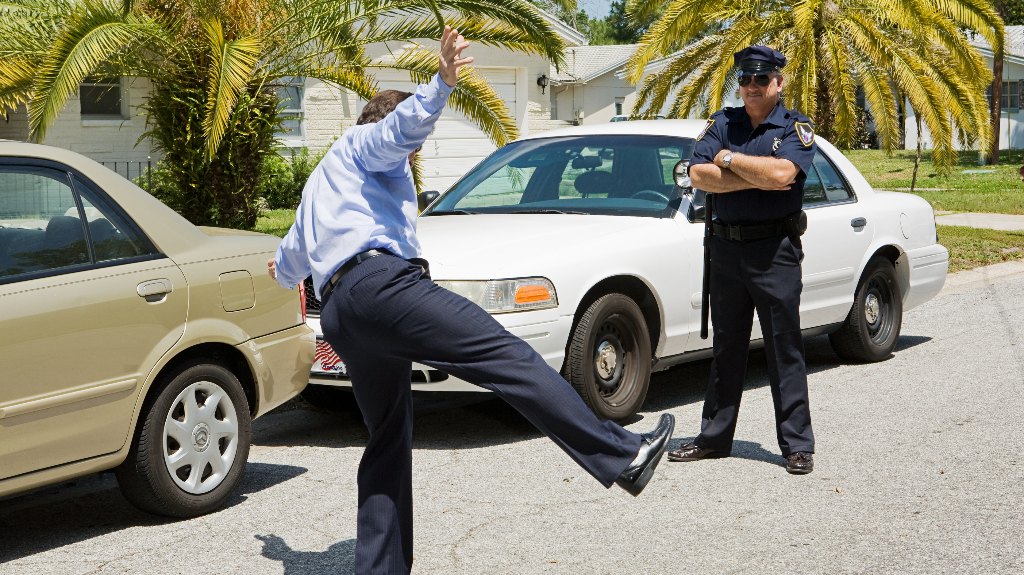Although field sobriety tests are well-known, many people remain unaware of their purpose, accuracy, or legal considerations. That is why, in this guide, we will review field sobriety tests administered in Indiana and explain what these tests involve.

What Is a Field Sobriety Test
Police officers use field sobriety tests to determine if a suspected impaired driver is under the influence of alcohol or drugs. Although several tests can be used, most police departments use three tests that are approved by the National Highway Traffic Safety Administration:
The One-Leg Stand
The person is instructed to stand on one foot and lift the other foot off the ground. They must maintain this posture for around 30 seconds. The officer is observing whether the individual can stand still without excessive swaying or losing balance, which could be signs of intoxication.
The Walk-and-Turn Test
The officer may require a specific number of steps while the participant walks heel to toe in a straight line, turns around, and returns. The test measures balance and the ability to follow directions.
The Horizontal-Gaze-Nystagmus Test
During the test, the officer will ask the participant to track a moving object with their eyes, such as a pen or a finger. The officer will observe how their eyes move during this time. The officer tracks this movement because when the participant moves their eyes from side to side, they involuntarily jerk at a certain angle. The developers of the test suggest that this angle is shallower when someone is under the influence of alcohol, indicating impairment.
Are Field Sobriety Tests Always Accurate?
Although officers commonly use field sobriety tests to determine if someone is operating their vehicle while intoxicated, these tests can sometimes produce misleading results. Physical ailments and mental health challenges, such as anxiety, can cause symptoms that appear similar to those of intoxication, leading to inaccurate results.
In addition, the admissibility of evidence gained during a field sobriety test can be affected if the wrong tests are performed or if the test is administered in a location without cameras recording it. Consequently, if you or a loved one has been charged with impaired driving due to the results of a field test, consider speaking with an experienced Indiana alcohol offenses lawyer about your options.
Contact Kaushal Law Today and Speak With Our Team
If you were charged with drunk driving in Indiana, it is likely that you were asked to undergo “field sobriety testing.” These tests and the results of breath or blood tests are often used to build a case against drivers accused of DUI. The goal is to prove that the motorist was impaired by alcohol or drugs at the time of the incident. However, even though you may feel powerless following this test, you may have options available to challenge the results, and at Kaushal Law, we are ready to help.
If you are facing a criminal charge or a violation involving alcohol, contact Kaushal Law online or by calling us at 765.434.3787 to determine your next steps.
